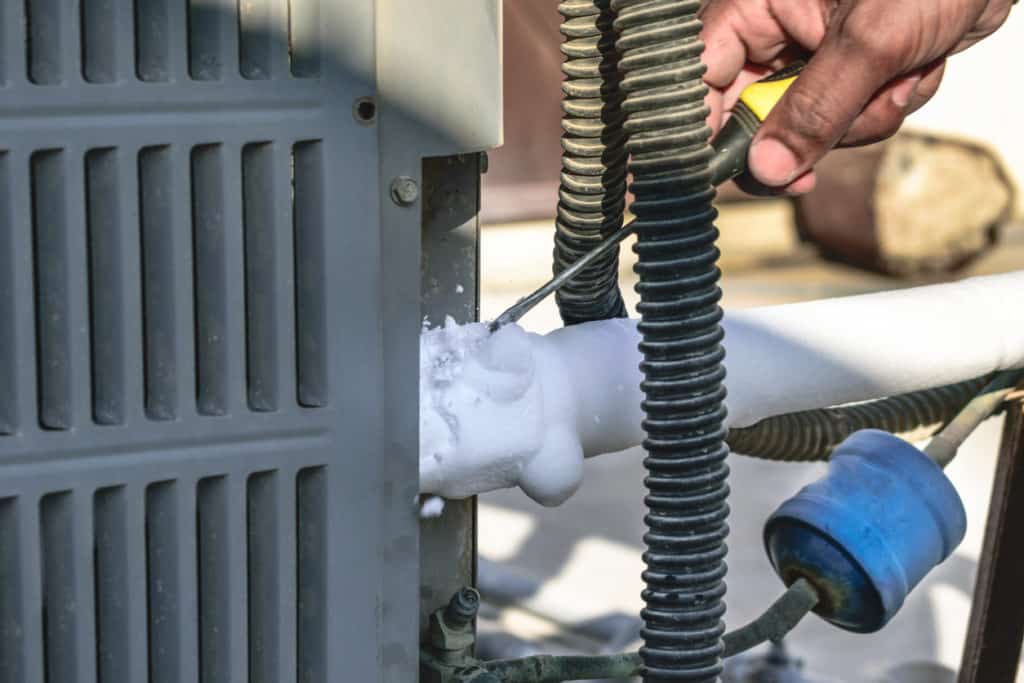Under normal circumstances, your air conditioning system should be out of sight and out of mind. And while you should expect to hear a low steady hum and feel cool air coming from the vents and returns, you should not be smelling anything unusual. And yet, if you notice a mildewy or Musty Odor emanating from your system, it’s time to learn the underlying causes to help determine the severity of the problem and how to remedy it.

Frozen Evaporator Coils
If evaporator coils freeze and go unnoticed for too long, you could be faced with extensive and costly repairs. Look for ice outside the refrigerant line, moisture and condensation around the air handler, a full drain pan, and ice around the coils themselves. If you spot any of these symptoms, turn off the thermostat and power to the AC unit and contact an HVAC tech right away.
Mold Inside Ducts or Vents
Mold and mildew emit telltale odors. If you pick up that scent wafting through your home, have a professional inspect your ductwork and AC system for signs of mold growth. If ignored and left to grow and spread, it can become a serious health hazard. Breathing in and inhaling mold spores can cause sore, scratchy throats, headaches, and respiratory distress.
A Full Drain Pan
A clogged drainpipe can cause the AC drain pan to remain full which, in turn, can lead to flooding, damaged building materials, along with mold and bacteria growth. Check the drain pan regularly and empty as needed. Keep in mind that most systems have two drain pans – one under the indoor evaporator coils and an auxiliary pan.
Clogged Drain Line
A clogged drain line can result in standing water around the indoor AC unit, water damage, mold and mildew growth, and eventually lead to system failure. While you can clean a drain line yourself, it’s best to contact an HVAC technician if you don’t know exactly how it’s done.
Improperly Sized AC Unit
Some people believe “less is more” while others prefer to “go big or go home”. But when it comes to your central air system, it should be sized just right to effectively deliver the right amount of conditioned air. An improperly sized unit may not adequately cool a home, thus increased indoor humidity that mold and mildew thrive in. Common signs of a poorly sized system include frequent cycling, running constantly, and hot and cold spots throughout the house.
As you can see, getting rid of not just moldy smells, but mold and mildew itself, is the job for an experienced HVAC team of professionals like Optimum Air. No matter what the home cooling or heating problem, contact us early on – over time, things will only get worse.